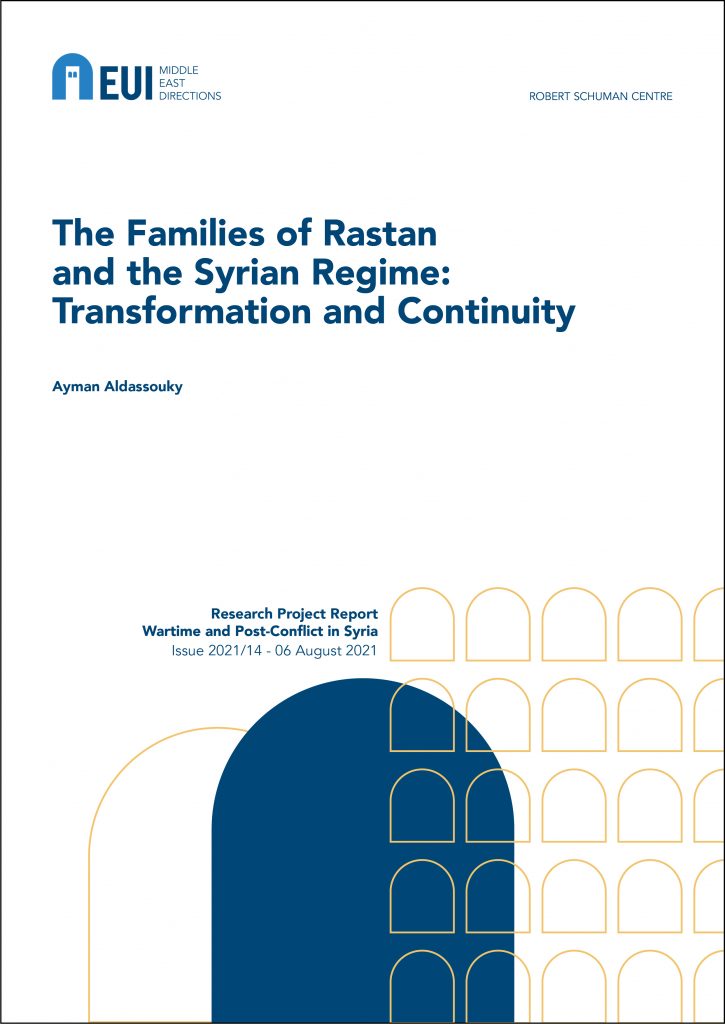MEDirections is delighted to share a new Research Project Report from the Wartime and Post-Conflict in Syria project (WPCS). This paper was written in Arabic and has been translated to English.
In May 2018, the Syrian regime regained control of the city of Rastan, in northern Homs, through a combination of force and negotiations. Since then, the regime has relied on certain local intermediaries who are loyal to and dependent on it. These intermediaries either belong to Rastan’s minor families or come from outside the city. This policy of weakening more powerful Rastani families – whose members had been affiliated with the army and the Baath Party and who enjoyed considerable influence under Hafez al-Assad – mimics the policies implemented by Bashar al-Assad in the pre-war decade. Drawing on interviews and online sources, this study examines intermediaries from Rastani families in an extended context, from the era of Hafez al-Assad to the uprising and to the subsequent recapture of the city. It discusses why the regime decided to rely on some family members and to marginalise others. It also asks whether the new intermediaries are capable of fulfilling the regime’s ambitions to dominate the area ‘post-reconciliation.’




